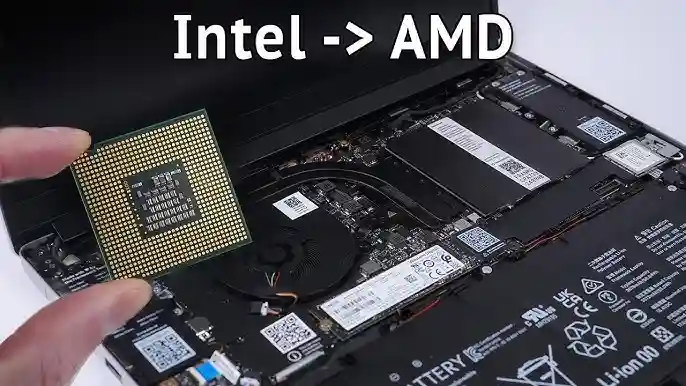
In the dynamic landscape of technology, keeping pace with the latest advancements is crucial for optimal performance and user satisfaction. One of the most effective strategies for enhancing your computing experience is through hardware upgrades. Let’s delve into the realm of hardware upgrades for Lcfmodgeeks and explore the transformative potential they offer.
Understanding Hardware Upgrades
Hardware upgrades encompass the process of enhancing various components of your computer system to improve its capabilities and functionality. From augmenting processing power to boosting storage capacity, these upgrades are pivotal in optimizing system performance.
What are hardware upgrades?
Hardware upgrades involve the replacement or addition of components within a computer system to enhance its capabilities. These components may include RAM modules, storage drives, graphics cards, and processors.
Importance of hardware upgrades
Hardware upgrades play a vital role in ensuring that your system remains competitive in today’s rapidly evolving technological landscape. By embracing hardware upgrades, users can unlock new features, improve system responsiveness, and address compatibility issues with modern software applications.
Types of Hardware Upgrades
RAM upgrades
Random Access Memory (RAM) upgrades involve increasing the amount of memory available to your system, allowing for smoother multitasking and faster data access.
Storage upgrades
Storage upgrades entail replacing traditional hard disk drives (HDDs) with solid-state drives (SSDs) or expanding existing storage capacity to accommodate growing data requirements.
Graphics card upgrades
Graphics card upgrades enable users to enhance visual performance, enabling smoother gameplay, faster rendering, and support for high-definition multimedia content.
CPU upgrades
Central Processing Unit (CPU) upgrades involve replacing existing processors with more powerful alternatives, resulting in improved system responsiveness and computational capabilities.
How to Choose the Right Hardware Upgrades
Assessing current hardware
Before embarking on a hardware upgrade journey, it’s essential to assess your system’s current configuration and identify areas that require improvement.
Compatibility considerations
When selecting hardware upgrades, compatibility with existing components and system specifications is paramount to ensure seamless integration and optimal performance.
Budget constraints
While pursuing hardware upgrades, it’s crucial to establish a realistic budget and prioritize investments based on your specific needs and usage requirements.
Steps to Perform Hardware Upgrades
Preparing for the upgrade
Prior to initiating hardware upgrades, it’s advisable to gather necessary tools, backup critical data, and familiarize yourself with the installation process.
Installing new hardware
Carefully follow manufacturer guidelines and best practices while installing new hardware components, ensuring proper seating and connection to the motherboard.
Testing and troubleshooting
After completing the installation process, perform thorough testing to validate hardware functionality and address any potential issues through systematic troubleshooting procedures.
Benefits of Hardware Upgrades
Improved performance
Hardware upgrades result in tangible performance enhancements, facilitating faster system boot times, reduced application loading times, and seamless multitasking capabilities.
Extended lifespan
By upgrading critical components such as RAM and storage, users can prolong the lifespan of their systems and postpone the need for costly replacements.
Enhanced user experience
Hardware upgrades contribute to a more immersive and enjoyable computing experience, enabling users to leverage advanced features and capabilities offered by modern hardware technologies.
Common Issues and Troubleshooting
Compatibility issues
Incompatibility between hardware components or software drivers can lead to system instability and performance degradation, necessitating thorough compatibility testing and troubleshooting.
Driver conflicts
Conflicts arising from incompatible or outdated device drivers can hinder system functionality and compromise user experience, requiring timely updates and resolution of driver-related issues.
Overheating problems
Inadequate cooling solutions or improper airflow within the system can result in overheating, leading to performance throttling and potential hardware damage. Implementing effective cooling measures and monitoring system temperatures is essential for preventing overheating issues.
Maximizing the Value of Hardware Upgrades
Future-proofing considerations
When selecting hardware upgrades, consider future-proofing strategies to ensure compatibility with upcoming software releases and technological advancements.
Maintenance tips
Regular system maintenance, including software updates, hardware inspections, and periodic cleaning, is essential for preserving the integrity and performance of upgraded components.
Conclusion
In conclusion, hardware upgrades offer a transformative opportunity to enhance the performance, functionality, and longevity of your computing system. By understanding the nuances of hardware upgrades and adhering to best practices, users can unlock the full potential of their systems and embrace a seamless computing experience.